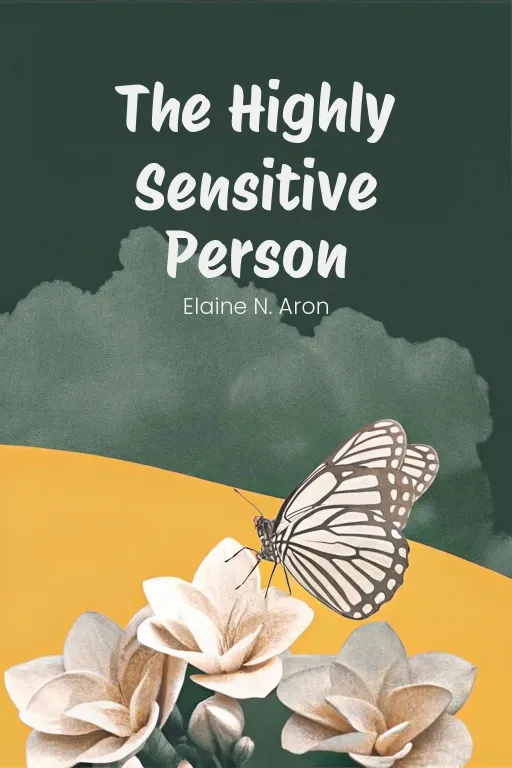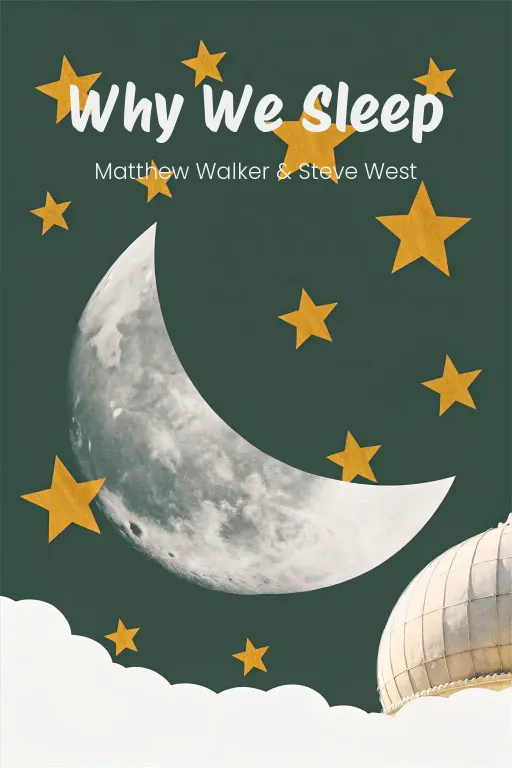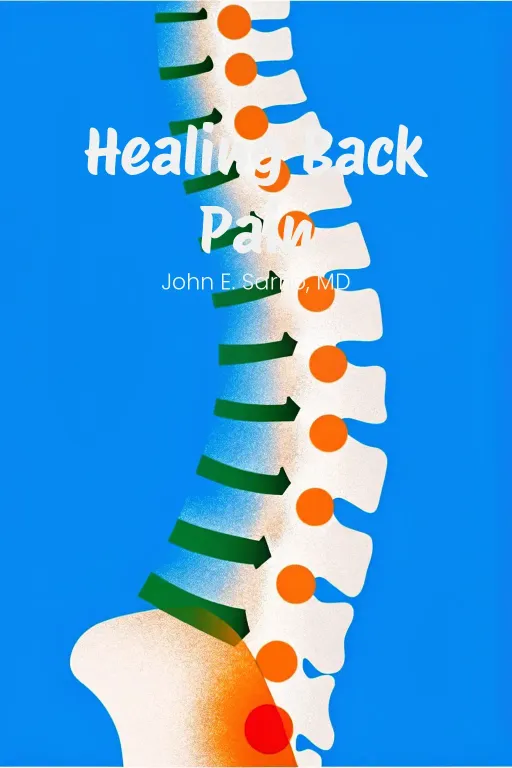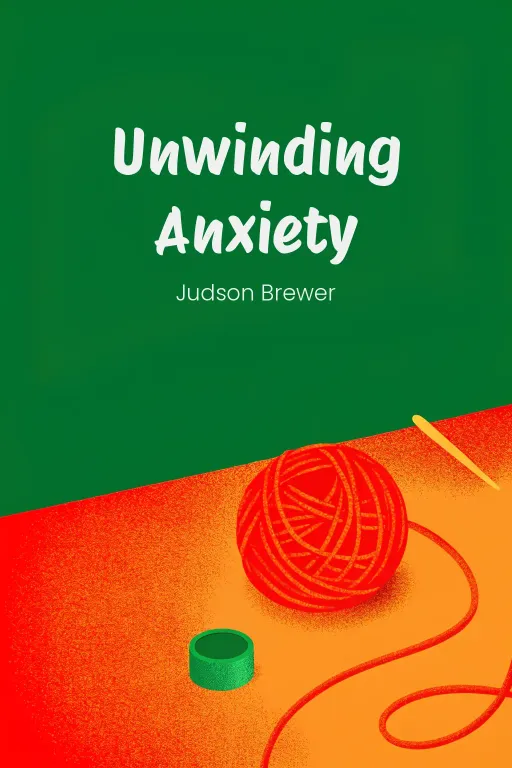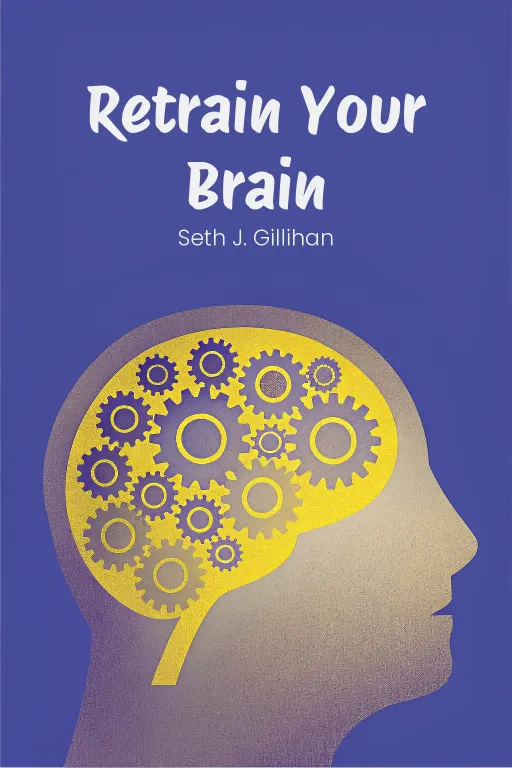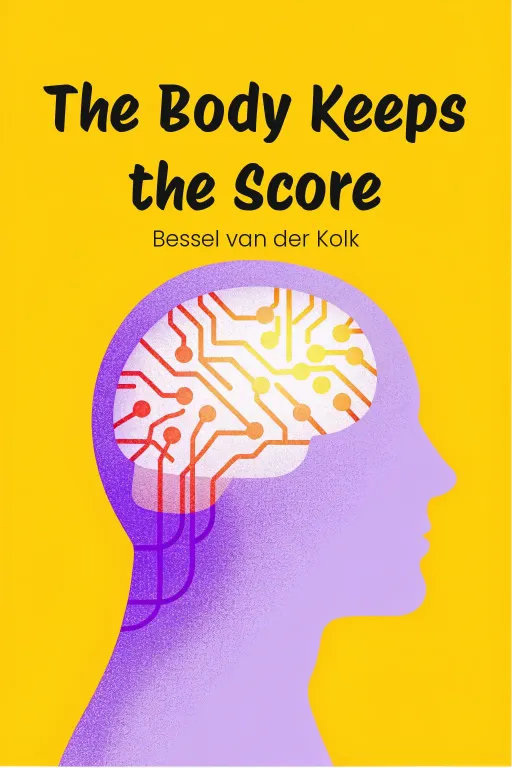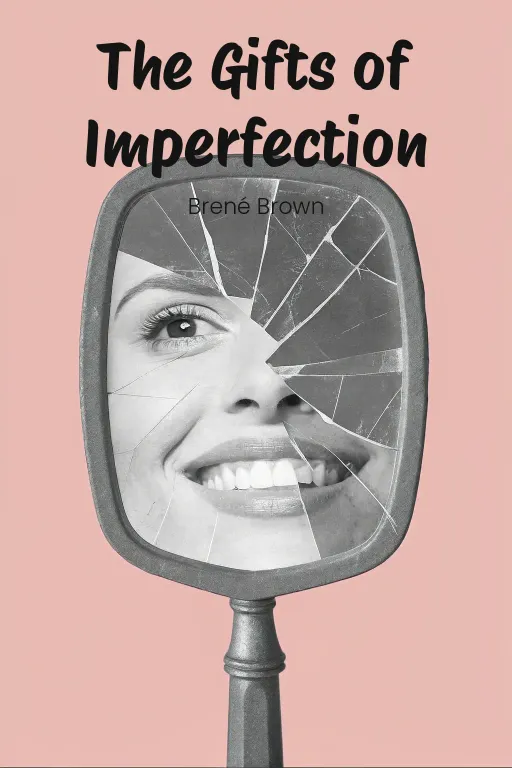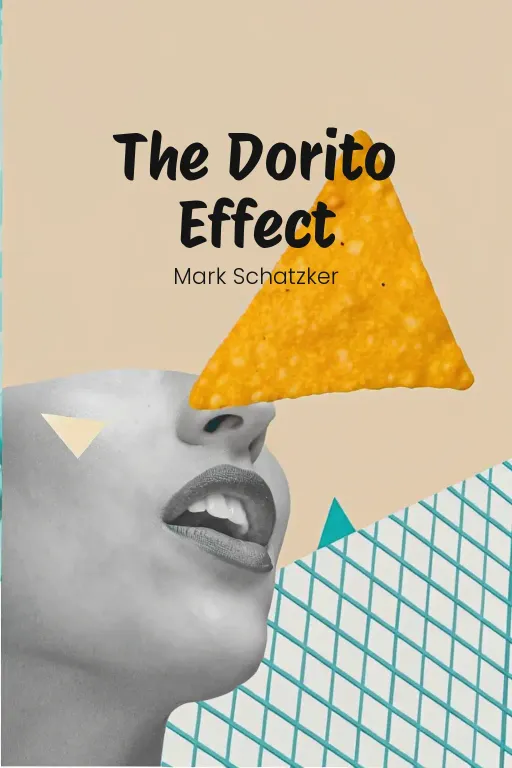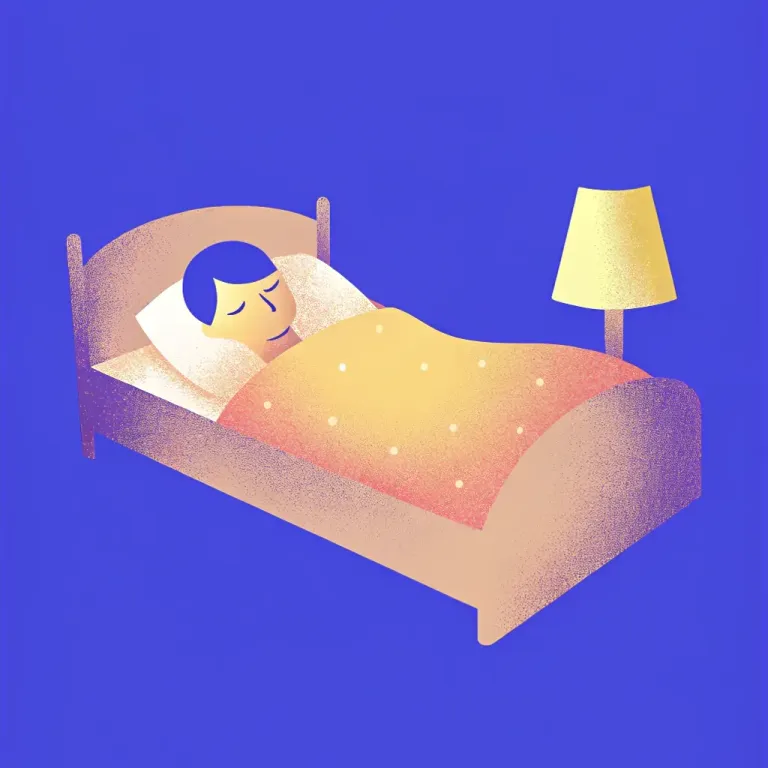
Sleep or Sink: Why Rest Rules All
Podcast by Beta You with Alex and Michelle
Unlocking the Power of Sleep and Dreams
Sleep or Sink: Why Rest Rules All
Part 1
Alex: Hey everyone, welcome back to the show! Quick question: when was the last time you woke up actually feeling refreshed? I mean, really rested? If you're like most of us, it's probably been a while, huh? Well, today we're tackling one of the most fundamental, yet often overlooked, parts of our lives: sleep. Michelle: Ah, sleep. That natural reset button we’re all constantly trying to dodge. So, Alex, let me guess—you're here to lay down the law and tell us why that's such a terrible idea? Alex: Exactly, Michelle! But it's not just about why it's bad; it's about understanding what sleep “is”, what happens when we cut corners. We're going to dive into the science behind sleep, exploring its evolutionary roots, its biological necessity, and how losing out on sleep impacts…well, just about everything. From our physical health to how we think, feel, and create. It’s really fascinating. Michelle: So, it's "Sleep: The Superhero We All Forgot Existed"? I’m liking this already. But if sleep is “so” vital, why does modern life seem almost designed to prevent it? Alex: That's precisely what we're going to break down. And, more importantly, what we can “do” about it. We'll look at personal strategies, and, for the big thinkers out there, maybe even some societal shifts we could consider! Michelle: Ambitious! Alright, grab your coffee—or maybe, given the topic, a glass of water—and let's dive deep into the science, the stakes, and potential solutions to this sleep crisis we're in.
The Science of Sleep
Part 2
Alex: Okay, Michelle, so to really get why sleep is a champion we often overlook, we’ve got to understand how it’s actually regulated. Think of it as a “dual system”—sleep pressure and circadian rhythms. They basically team up to manage our sleep schedule. Michelle: Alright, so sleep pressure builds from this chemical, adenosine, stacking up while we're awake, right? Kind of like a to-do list that gets longer the more you ignore it? Alex: Spot on! Adenosine is produced when our brains use energy. The longer we're awake and active, the more adenosine builds up, making us feel tired. It’s our body's signal to rest. And when we sleep, our brain clears it away, which is why we feel refreshed the next day. Michelle: Got it. Adenosine is like the brain's cleanup crew. And then we have the circadian rhythm—our internal clock. So, how does that fit in? Alex: Picture the circadian rhythm as a timekeeper, orchestrating when we feel sleepy or alert over a 24-hour cycle. It’s driven by environmental cues like sunlight and temperature, managed by the suprachiasmatic nucleus in the brain. It controls the release of melatonin, the sleep hormone, helping us know when to power down or stay awake. Michelle: So, between adenosine yelling, "You're exhausted!" and the circadian clock chiming in, the body's pretty well set up. What happens when they disagree? Take jet lag, for example. I once flew to Berlin—I woke up at 3 a.m. convinced it was time for breakfast! Didn't feel like regular tiredness. Alex: Exactly. That’s your circadian rhythm being out of sync with the local time. So, if you fly to Berlin, your internal clock still runs on your home time zone, even as the sunlight and everything else around you are on a different schedule. This throws your sleep-wake cycle into chaos. Melatonin, which should have peaked the night before, might be delayed because your brain still thinks it’s afternoon. Michelle: Ah, so that's where melatonin supplements come in, right? Sort of forcing the brain to adjust? Alex: Precisely. Melatonin taken at bedtime in your new location can send signals to your circadian system, saying: “Hey, it’s nighttime now, adjust accordingly.” It’s not a permanent solution, but it helps a lot with the transition. Michelle: I see. It feels so utterly “human” to mess with such a fine-tuned system. Take caffeine—everyone's favorite adenosine blocker. How much does my morning coffee mess things up? Alex: Caffeine's a fascinatingly tricky molecule--it doesn't get rid of adenosine. It just blocks the receptors in your brain from sensing it. So, your brain doesn't realize how tired you are. It's why you feel artificially alert after—and why adenosine comes crashing back when the caffeine wears off, causing the inevitable “caffeine crash.” Michelle: So grabbing that third espresso just to stay awake basically invites an adenosine tsunami by dinner. Wonderful. Alex: Pretty much. Relying on caffeine to fight natural energy dips can really undermine the whole system. It's like ignoring the low fuel light in your car by covering it with tape. Michelle: Good analogy—you’re not actually fixing the problem, just pretending it’s not there. Let's dig into what happens in our brains and bodies during sleep, particularly through the NREM and REM stages, right? Alex: Right! We cycle between NREM and REM sleep throughout the night, with each step offering us unique benefits. NREM sleep makes up most of our rest. Think of your brain as a librarian during this phase, carefully sorting and filing new memories. It’s all about deciding what to keep long-term and what to discard. Michelle: So, it's more than just snoozing—it’s brain organization. I read about a study where participants heard audio cues linked to their memories while they slept, and their recall improved. How deep does this cleanup process go? Alex: That's exactly the kind of study I wanted to mention! Your brain strengthens neural pathways connected to crucial info while pruning those linked to irrelevant data. Essentially, it optimizes mental inventory. Without it, your memory and learning suffer. Michelle: And then we have REM sleep—the wild stage linked to dreams. But it’s more than just a nightly movie, right? Alex: Absolutely. During REM sleep, your brain's super active, processing emotions and integrating emotional memories. It's also when we become more creative—connecting ideas in ways the conscious brain can't. Dmitri Mendeleev literally dreamt up the periodic table during REM. Michelle: It's kind of ironic. We work so hard on tough problems, but the key is to sleep on it. So, REM keeps us sharp emotionally and creatively, but isn't it also like an emotional pressure valve? Alex: Exactly. REM recalibrates the amygdala, the part of the brain linked to fear, anxiety, and other strong reactions. Studies show that if you lose REM sleep, you become more reactive and less emotionally stable. It’s an emotional stabilizer if anything. Michelle: No wonder we're grumpy zombies after losing sleep. Can sleep deprivation really harm our physical health after just one night? Alex: Sadly, yes. One night of poor sleep can raise blood pressure, increase heart rate, and disrupt glucose metabolism. And chronic sleep deprivation? It can double your risk of cardiovascular disease, depression, and even Alzheimer's. Michelle: You're describing a full-body breakdown! It's like skipping car maintenance and wondering why the engine blows up. So, why is sleep the first thing we cut when life gets hectic? It seems a little unwise, almost reckless. Alex: I couldn't agree more, Michelle. By undervaluing sleep, we undermine the very foundation of our physical and mental health. So let's explore why sleep gets treated as optional and how we can change that.
Evolutionary and Health Implications
Part 3
Alex: Now that we’ve looked at the science of sleep, let's dive into why it's evolved to be so crucial. We'll explore how sleep became this adaptable, vital function and the serious health consequences when we don't get enough. From the science to the real-world impact, we’ll see why we can't live without sleep, and how being sleep-deprived messes with everything from our survival instincts to our heart health. Michelle: So, we're kicking off by looking at how sleep saves lives, like, literally saves lives. Even dolphins need it! Alex, tell us, how do dolphins manage to sleep and survive at the same time? Alex: <Enthusiastically> Oh, it’s one of nature’s coolest tricks—unihemispheric sleep! Basically, one half of their brain sleeps while the other stays awake. It’s how dolphins and other aquatic mammals can rest without completely shutting down. It lets them do things like come up for air and stay safe from predators. Even in a risky world, sleep is too important to skip. Michelle: Half-asleep but still functional? Sounds like me every Monday morning. Seriously though, isn't this a paradox? They’re most vulnerable when they’re resting, but evolution didn’t get rid of sleep—it just adjusted it. Doesn’t that tell you how crucial sleep is? Alex: Exactly! The fact that evolution found a workaround, like sleeping with half a brain at a time, shows that rest is essential. Even with real dangers, nature made sure these creatures could still get the restorative benefits of sleep. And we humans are no different and also benefit from these adaptations. Michelle: Right, our ancestors. Back before memory foam, we came down from the trees. How did that change their sleep habits? Alex: Big time! Sleeping on the ground meant facing new dangers, mainly predators. But communal fires changed everything. Fire gave them protection, warmth, and a place to socialize, which meant they could sleep deeper and more soundly. The quality improved even if they didn't always sleep as long. This resulted in more REM sleep, which is important for creativity, emotional processing, and problem-solving. Michelle: So, fires weren’t just for stories; they boosted REM sleep and helped survival. And I guess being able to process emotions or come up with better tools and hunting ideas gave them an edge, right? Alex: Absolutely! REM sleep supercharged our ability to adapt. By connecting survival with brainpower, sleep became key to thriving in uncertain times. But what happens when people today don't get enough sleep? Michelle: Well, chaos, obviously. Let's talk about the health problems that come up when sleep goes missing. Starting with cardiovascular health—you're saying that missing sleep messes with your heart? Alex: Absolutely. Studies show that sleep deprivation is linked to a nearly 45% higher risk of heart disease. Even just one bad night can throw off your heart rate and blood pressure. It’s like putting extra stress on your body’s most vital system. And over time, that stress really adds up. Michelle: I bet modern life, with all the caffeine and screens, isn’t helping. But what about metabolism? I hear sleep-deprived people make bad food choices? Alex: It’s not totally their fault! Sleep messes with the hormones that control hunger, like leptin and ghrelin. When you have less leptin, you don't feel full, and when you have more ghrelin, you feel hungrier. So, you're basically programmed to crave comfort foods that are high in fat and sugar. Plus, sleep deprivation can reduce your body's ability to regulate glucose by as much as 40%. That's a recipe for weight gain, insulin resistance, and eventually, type 2 diabetes. Michelle: So, missing sleep isn’t just about watching an extra show on Netflix. It’s turning people into pre-diabetics and tricking them into thinking ice cream at midnight is a good idea. That’s a terrible cycle. Alex: Exactly! And it doesn’t stop there. Sleep deprivation also weakens your immune system. In studies, people who slept less than seven hours were almost 50% more likely to catch a cold when exposed to the virus. And their response to vaccines was weaker. Michelle: Weak immune systems and poor vaccine responses? That’s scary, both personally and for public health. Sleep sounds like nature’s cure-all, but not getting it is a quick way to fall apart. Alex: And the effects are even clearer in the brain. Cognitive performance drops, even with just a little sleep loss. Chronic sleep deprivation stops the brain’s glymphatic system—its waste-removal system—from clearing out toxins like beta-amyloid proteins. These proteins are linked to Alzheimer’s disease, which means that sleep loss can speed up brain decline in the long run. Michelle: So, deep sleep isn’t just for feeling sharp today—it’s an investment in brain health for the future. Wow, that might be the most disturbing thing yet. You're basically depriving your brain of its cleaning crew and that’s not good. Alex: Precisely! This shows why sleep isn’t just a “nice-to-have.” It’s essential for every aspect of our health, from how dolphins survive to how we maintain a healthy heart. But we’ve built a society that doesn’t prioritize it. Why do we underestimate something so important? This raises a critical question: How can we make sleep more important, both in our own lives and in society as a whole?
Societal and Personal Solutions
Part 4
Alex: So, with all these health risks we've discussed, it naturally brings us to, you know, how do we actually improve our sleep? Both as individuals and, like, on a larger societal level. We really need to look at practical solutions, from things we can do ourselves—sleep hygiene, for example—to bigger changes in schools and workplaces. It’s really a two-pronged approach, right? What we can do “today”, and what systemic changes are needed to create a culture that actually values sleep. Michelle: Exactly—the actionable stuff. And let's not forget those larger forces, the systems that seem to be actively conspiring against our sleep. So, where do we even start, Alex? Schools? Corporate culture? Or do we start with people like us, who stay up late watching documentaries about sleep, while totally ignoring our own advice? Alex: Well, let's tackle one of the biggest systemic problems first: school schedules. The way things are set up now, it's almost designed to make kids—especially teenagers—fail to get enough sleep. Their natural body clocks actually shift later during adolescence. Biologically, they're programmed to fall asleep and wake up later. And yet, we expect them to show up at school at the crack of dawn. The result? Chronic sleep deprivation. Michelle: It's like teenagers don't already have it tough enough, and we’re throwing in a biologically cruel wake-up call every weekday just to spice things up. So, I'm guessing there's some actual science behind this, not just, you know, teenage angst? Alex: Absolutely. Take Edina High School in Minnesota. They pushed their start time from 7:25 a.m. to 8:30 a.m., and the benefits were immediate. Their top students' verbal SAT scores jumped from 605 to 761. Math scores went up too, from 683 to 739. And this isn't just a random occurrence; it's measurable proof that aligning school schedules with student biology really leads to better learning outcomes. Michelle: Wow, a nearly 30% increase in SAT scores just by sleeping more? Forget the tutors—just let them sleep in! But, I can already hear the objections. Logistical nightmares, bus schedules, parents' work hours... What would you say to those concerns? Alex: Those are common concerns, yes. But you have to think about the costs of not changing. We’re talking about reduced academic performance, increased rates of anxiety and depression, and even physical health risks! So, we need to frame this as a public health issue, not just a scheduling inconvenience. That can really help push for reform. Michelle: Fair enough. Miserable teenagers, lower grades, mental health… early mornings seem to just make everything worse. So, schools need to wake up, pun intended. What's next, then? The corporate world? Feels like another giant sleep-deprived wasteland. Alex: Exactly. Sleep deprivation is almost glorified in some professional settings. Like it’s a badge of honor or something. But you know, it’s fascinating how companies that challenge that—that go against the norm—actually see real benefits. Aetna, for example, rewards employees who get at least seven hours of sleep for 20 consecutive nights. They track sleep with fitness devices and give financial incentives. Michelle: Wait, they’re paying people to sleep? Forget this podcast—I’ll just clock in seven hours a night and retire early. But, seriously, how does that translate into better performance at work? Alex: Well, it's hugely beneficial. Aetna found that well-rested employees are sharper, more innovative, and more loyal to the company. The CEO even connected better sleep directly to improved productivity and decision-making. And other companies, like Google, they’ve added nap pods so employees can recharge during the day, further, you know, reinforcing that rest fosters creativity and focus. Michelle: I like the idea of normalized nap pods. Feels very "future office," but it's really just addressing a very basic biological need. But, let's be real, what about those of us who aren't working for Aetna or Google? What can companies that don't have million-dollar wellness budgets do to make real changes? Alex: They could start with flexible work hours. Letting employees set schedules based on their natural sleep patterns. Whether they’re early risers or, you know, night owls. It could really improve productivity and morale. It’s easy to implement, and it shows they actually care about the diverse sleep needs of their employees. Michelle: Okay, so we've got school reforms to help teenagers, and flexible office policies to help the overworked masses. What about personal strategies? What's the, like, number one rule of sleep hygiene for those of us just trying to survive out here on our own? Alex: Glad you asked! Sleep hygiene is really the foundation of any personal intervention. And it starts with maintaining consistent sleep and wake times, even on weekends. Your body’s internal clock thrives on regularity, and disrupting that with "social jet lag" can undo all the hard work of creating healthy sleep habits. Michelle: Social jet lag—the idea that a Saturday night party can throw your internal clock into a tailspin. That's incredibly relatable, but also wildly unhealthy, probably. What's next, then? Do I need to make my bedroom look like a bat cave? Alex: Pretty much, yes! Optimizing the sleep environment is essential. Your room should be dark, quiet, and cool. Around 60 to 67 degrees Fahrenheit is ideal. Blackout curtains block unwanted light. White noise or earplugs mask disruptions. Together, these elements really set the stage for deeper, more restorative sleep. Michelle: What about caffeine? I'm guessing my afternoon coffee habit isn't helping, huh? Alex: Correct. Caffeine delays sleep by blocking the buildup of adenosine. That’s the chemical that makes you feel tired. Skipping caffeine at least six hours before bedtime is really key. And similarly, limiting screen use before bed helps your body release melatonin on schedule. Blue light from devices suppresses that hormone, tricking your brain into thinking it's still daytime. Michelle: So, no late-night email checks or Netflix binges. That... sounds rough for a society glued to its screens. What about sleep tech, then? Those apps and gadgets that analyze your sleep stages—are they useful, or are they just another gimmick? Alex: Sleep technology can be a good tool for awareness, at least initially. Wearable trackers and apps provide insights into your sleep patterns, help you identify, you know, potential issues, like insufficient deep sleep. However, over-reliance can lead to stress. They actually call it "orthosomnia," where the act of tracking interferes with restful sleep. Balance is really critical. Michelle: Right, the irony of stressing so much about optimizing your sleep that you can't sleep at all! Seems like a very modern problem. Alex: It is. And it highlights why addressing sleep doesn’t stop at personal responsibility. To make meaningful change, individual habits need to combine with cultural and systemic reform. Whether it’s later school start times, workplace flexibility, or simply making sleep a non-negotiable priority. You know, these kinds of interventions build the foundation for a truly sleep-conscious society. Michelle: So there it is—the dream of a society where “rest” and “success” aren’t at odds. A world where the coffee machine stops being the unsung hero of the office.
Conclusion
Part 5
Alex: Okay, so to recap, we really went deep on sleep today. We started with the science – sleep pressure, circadian rhythms, all that good stuff. Then we looked at why we even sleep from an evolutionary perspective, and honestly, the health consequences of sleep deprivation are kind of terrifying. Finally, we talked about what we can actually do about it – both as individuals and, you know, as a society – to get better rest in this crazy always-on world. Michelle: Exactly! It’s wild, isn’t it? Dolphins sleeping with half a brain, and we’re here pounding coffee just to get through the day. It's pretty clear sleep is crucial, yet we treat it like a negotiable extra. I think we offered some solid steps – better sleep habits, rethinking school start times, even those nap pods at work that sound kind of amazing! But here's the thing that really stuck with me: none of these work unless we actually stop seeing sleep as optional. Alex: Yes, absolutely. If you only remember one thing from this episode, please let it be this: Sleep is not a luxury. It’s a fundamental necessity. It’s the foundation for, well, everything! Your physical health, your emotional well-being, your creativity... everything. So, whether you start by just setting a consistent bedtime for yourself or, you know, start pushing for bigger systemic changes, we all need to start valuing our sleep. Michelle: So the real question, isn’t it, is what can we do – as individuals, as companies, as a society – to genuinely prioritize sleep? Because, really, at the end of the day – or I guess, before the start of the day – investing in our sleep might be the single most impactful thing we can do. Alex: Beautifully put, Michelle. Sleep well, everyone!

